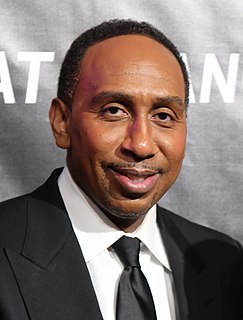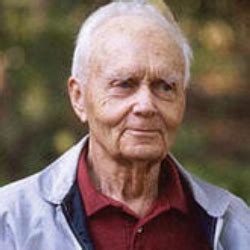A Quote by Howard Gardner
There are clear differences between child and adult artistic activity. While the child may be aware that he is doing things differently from others, he does not fully appreciate the rules and conventions of symbolic realms; his adventurousness holds little significance. In contrast, the adult artist is fully cognizant of the norms embraced by others; his willingness, his compulsion, to reject convention is purchased, at the very least, with full knowledge of what he is doing and often at considerable psychic cost to himself.
Quote Topics
Activity
Adult
Appreciate
Artist
Artistic
Aware
Between
Child
Clear
Cognizant
Compulsion
Considerable
Contrast
Convention
Conventions
Cost
Differences
Differently
Does
Doing
Embraced
Full
Fully
Himself
His
Holds
Knowledge
Least
Little
May
Norms
Often
Others
Psychic
Purchased
Realms
Reject
Rules
Significance
Symbolic
Things
Very
While
Willingness
Related Quotes
In certain circumstances where he experiments in new types of conduct by cooperating with his equals, the child is already an adult. There is an adult in every child and a child in every adult. ... There exist in the child certain attitudes and beliefs which intellectual development will more and more tend to eliminate: there are others which will acquire more and more importance. The later are not derived from the former but are partly antagonistic to them.
The master in the art of living makes little distinction between his work and his play, his labor and his leisure, his mind and his body, his information and his recreation, his love and his religion. He hardly knows which is which. He simply pursues his vision of excellence at whatever he does, leaving others to decide whether he is working or playing. To him he's always doing both.
And often he who has chosen the fate of the artist because he felt himself to be different soon realizes that he can maintain neither his art nor his difference unless he admits that he is like the others. The artist forges himself to the others, midway between the beauty he cannot do without and the community he cannot tear himself away from.
A child is an eager observer and is particularly attracted by the actions of the adults and wants to imitate them. In this regard an adult can have a kind of mission. He can be an inspiration for the child's actions, a kind of open book wherein a child can learn how to direct his own movements. But an adult, if he is to afford proper guidance, must always be calm and act slowly so that the child who is watching him can clearly see his actions in all their particulars.
Praise, help, or even a look, may be enough to interrupt him, or destroy the activity. It seems a strange thing to say, but this can happen even if the child merely becomes aware of being watched. After all, we too sometimes feel unable to go on working if someone comes to see what we are doing. The great principle which brings success to the teacher is this: as soon as concentration has begun, act as if the child does not exist. Naturally, one can see what he is doing with a quick glance, but without his being aware of it.
The man who barely abstains from violating either the person, or the estate, or the reputation of his neighbours, has surely very little positive merit. He fulfils, however, all the rules of what is peculiarly called justice, and does every thing which his equals can with propriety force him to do, or which they can punish him for not doing. We may often fulfil all the rules of justice by sitting still and doing nothing.
The wise man does nothing but what can be done openly and without falseness, nor does he do anything whereby he may involve himself in any wrong-doing, even where he may escape notice. For he is guilty in his own eyes before being so in the eyes of others; and the publicity of his crime does not bring him more shame than his own consciousness of it.
The child is naturally meditative. He is a sort of samadhi; he's coming out of the womb of existence. His life river is yset absolutely fresh, just from the source. He knows the truth, but he does not know that he knows.... His knowledge is not yet aware. It is innocent. It is simply there, as a matter of fact. And he is not separate from his knowledge; he is his knowledge. He has not mind, he has simple being.
I believe that the unity of man as opposed to other living things derives from the fact that man is the conscious life of himself. Man is conscious of himself, of his future, which is
death, of his smallness, of his impotence; he is aware of others as others; man is in nature, subject to its laws even if he transcends it with his thought.

































